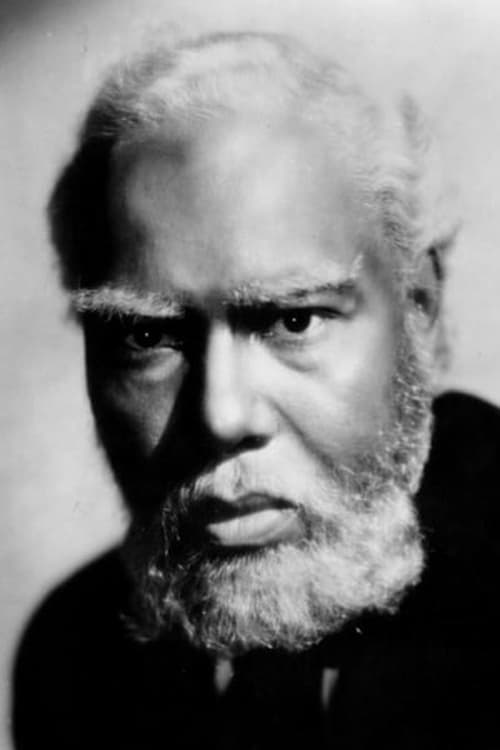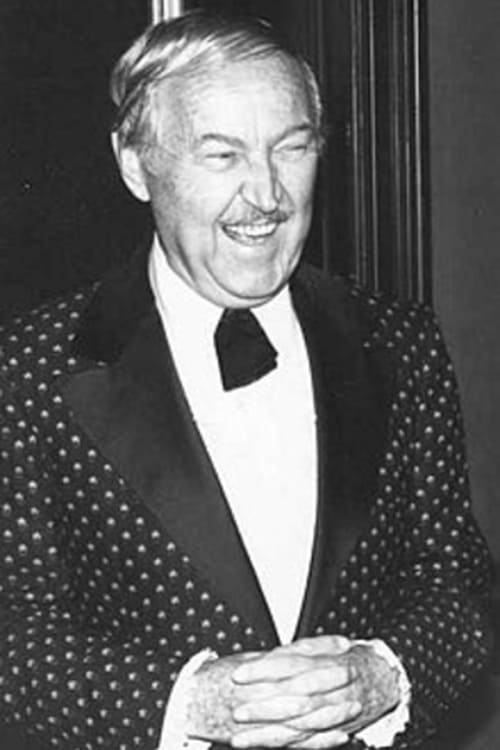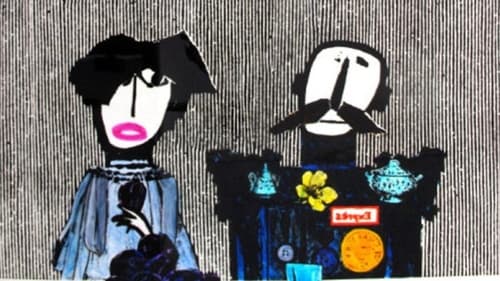John Henry and the Inky-Poo (1946)
Genre : Animation, Drama
Runtime : 7M
Director : George Pal
Synopsis
In this Puppetoon animated short film (an Academy Award Best Short Subject, Cartoons nominee), legendary American folklore figure John Henry (voice of Rex Ingram) goes to work for the C&O Railroad, which shortly thereafter buys an automatic steel-driving engine, The Inky-Poo. John Henry matches his strength against the engine, saying that any man can beat a machine because a man has a mind. Can he prevail? In 2015 this film, deemed "culturally, historically, or aesthetically significant", was selected for preservation in the United States National Film Registry.

In this Puppetoon animated short film (an Academy Award Best Short Subject, Cartoons nominee), a young Dutch couple find their idyllic countryside being overrun by unfeeling, unthinking mechanical men and machines that lay waste to everything in their path. In 1997 this film, deemed "culturally, historically, or aesthetically significant," was selected for preservation in the United States National Film Registry.

In this entertaining Puppetoon animated short film, a young boy, Jasper, gets trapped inside a pawnshop at midnight. All the musical instruments come to life and play jazz. A whooping wooden Indian chief self-animates as well, and goes on the warpath.

Animated characters introduce a compilation of George Pal replacement animation Puppetoon short films from the 1930s and 1940s. Originally released in 80 minutes length, The Puppetoon Movie also exists in a subsequently expanded ten minutes longer version.

In this Puppetoon animated short film (an Academy Award Best Short Subject, Cartoons nominee), Tubby the Tuba is disappointed that his sound limits what he's permitted to do in an orchestra of self-playing instruments that, unlike him, get to play pretty melodies. A chance meeting with a bullfrog changes everything.

Puppet animation of Bert Ambrose and His Orchestra performing. A Puppetoon animated short film.

In this Puppetoon animated short film, a variety of music styles are heard as, in various locations, characters dance or sing.

In this Puppetoon animated short film, Judy, an enticing blonde, lives across the way from Punchy and uses all her feminine wiles to try to snare him.

Jim Dandy lands on a tropical island and falls in love with a beautiful maiden. Soon a tribe of cannibals kidnap him. A Puppetoon animated short film.

Centuries ago in the past, the witch, who doesn't like Beauty, puts her to sleep, then flies throughout the castle spreading sleep powder, placing all into slumber. Eventually we flash forward to present time: A young hepcat in a convertible tries awakening Sleeping Beauty, and everyone in the castle, with some Big Band music. Will it work? A Puppetoon animated short film.

The Great Maestro gets to conduct more than he can compose himself to. A Puppetoon animated short film.

Has to do with a consideration of one possible conceptual model for human existence: that of a primitive form of yardchair, upon which sits The Creator, impassively observing the inexorable flow of His mountains.

Heretic is a modern dance work by Martha Graham performed to Tetus Breton, an old folk tune from Brittany.

1935 documentary about the hard working life of Welsh coal miners.

A send-up of Griffith's THE LONELY VILLA and other movies of that sort, such as THE GIRLS AND DADDY, THE LONEDALE OPERATOR and many others, as the heroine, thinking that burglars are trying to break into her home phones her husband at the office, who rushes home.... well, who tries to rush home in his chauffeur-driven automobile.

No information available regarding the film's director. Just under 10 minutes of over an hour's footage survive.

Ferdie's wife is fox-trot crazy, wanting to go dancing all the time. To get out of it, Ferdie fakes an ankle injury. When his wife spies him walking without his crutch, she writes a letter to her stern mother, inviting her to stay with them while Ferdie heals. Rather than face his mother-in-law, Ferdie admits he was faking his injury, and tears up the letter.

Rather than telling his parents, who have another girl picked out for him, Bob brings home his new wife disguised as his friend "Steve."

Black-and-white, etched-wood animation tale about the Grim Reaper. In a remote forest, Death in disguise calls on a woman and her baby daughter.

Les Blank's poetic documentation of 1967's Los Angeles Easter Sunday Love-In.
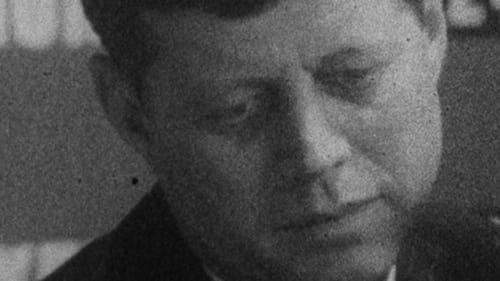
Robert Drew shows the sights and sounds from the funeral of President John F. Kennedy in November, 1963.

At Stamford Road in Dalston Junction of east London, the camera follows pedestrians, cars and birds while a narrator, who appears to be the director behind the camera, seems to instruct the objects.

A man talks about heroin abuse and withdrawal.

It is one of the most stirring animated films in the history of animation. In a simple, but powerful way Czekala presents a horror that happened in concentration camps – prisoners’ dread, humiliation and lost humanity. The everyday roll-call ends tragically because of prisoners’ “insubordination” in this black and white film. The Roll-Call crossed borders of what can be presented or not in animation. It is sometimes interpreted as a response to the trend of allegorical and philosophical films that dominated in Polish animation in 1960s.

". ..As though you were approaching earth as a god, from cosmic consciousness. You see the same things but with completely different meaning."

The parade occupies only a small portion of the screen, the crowds are a seething mass that do really move and the Independence Bell is nowhere to be seen.
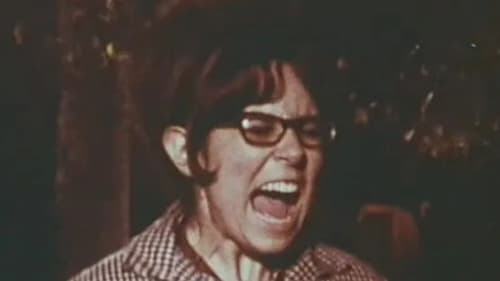
Documentary about the potentially dangerous and unpredictable drug LSD. Various experts discuss how LSD is made and the hazards involved in using it while avid users explain why they enjoy taking it.

19th century carnival ride.

